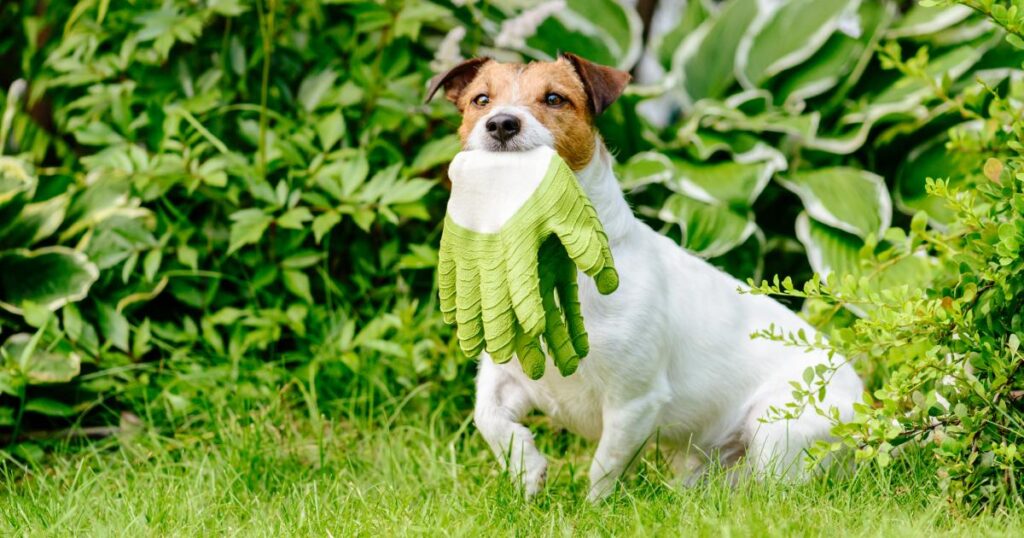With the weather improving, Brits will no doubt spend more time in their garden.
One of the major products used by keen gardeners across the UK may be plant fertiliser.
However, dog owners planning to use fertiliser should be aware of the risks it poses to their dogs.
Is plant fertiliser bad for dogs? Vet explains the dangers
While plant fertiliser may be fine on its own, many contain weed killer or other ingredients that can pose issues.
Dr Samantha Butler-Davies is a member of the Royal College of Veterinary Surgeons and Veterinary Services Director at Pets at Home.
She has warned pet owners that many common garden fertilisers can contain substances that can be “highly toxic to pets, particularly dogs“.
Dr Butler Davies continued: “Ingredients such as nitrogen, phosphorus, potassium, iron and sometimes even pesticides or herbicides are found in these products and while they’re beneficial for plant health, they can be very dangerous if ingested by animals.
“Dogs are naturally curious and may sniff, lick or even eat fertiliser granules or residues from treated grass and soil.
“This can lead to a range of symptoms, including vomiting, diarrhoea, drooling, tremors and in severe cases, seizures.
“Some organic or ‘natural’ fertilisers, especially those containing bone meal, can be particularly tempting to pets but still pose a serious risk.”
@uktoday_ The ugliest dogs in the world have been revealed- but do you agree? #uknews #dogsoftiktok #dogbreeds #uglydog #uknewsheadlines ♬ original sound – UKToday 🇬🇧 Newsquest
Dr Butler-Davies advised pet owners to keep animals indoors while fertiliser is being applied and to wait 24 to 48 hours before allowing them back near treated areas.
However, this can vary depending on the product, so check the manufacturer’s recommendations.
“Fertilisers and garden chemicals should also be stored securely and out of reach of inquisitive paws”, she added.
What should I do if my dog eats plant fertiliser?
Dr Butler-Davies urged Brits to “act quickly” if they suspect their pet has eaten or come into contact with fertiliser.
She said: “Contact your local vet immediately and if you can, bring the product packaging with you so your vet can assess the ingredients and treat accordingly.”
Are there pet-friendly fertilisers to use?
Ben Agnew, grass expert at Lawnsmith suggested opting for “granular or pelleted products”.
He said: “These settle well down into the turf once applied, are generally not very noticeable, and are unlikely to be hoovered up by your pet if it decides to try snacking on some greenery.”
Pet owners could opt for plain fertiliser with no weed killer or fertiliser with iron, although the second could stain paws.
Recommended reading:
Lawnsmith also recommends avoiding liquid feed or feed that needs to be watered in.
Other natural alternatives would also work well in strengthening the growth of your plants.
These include seaweed, manure and compost, which are safer for pets than shop-bought fertilisers.
